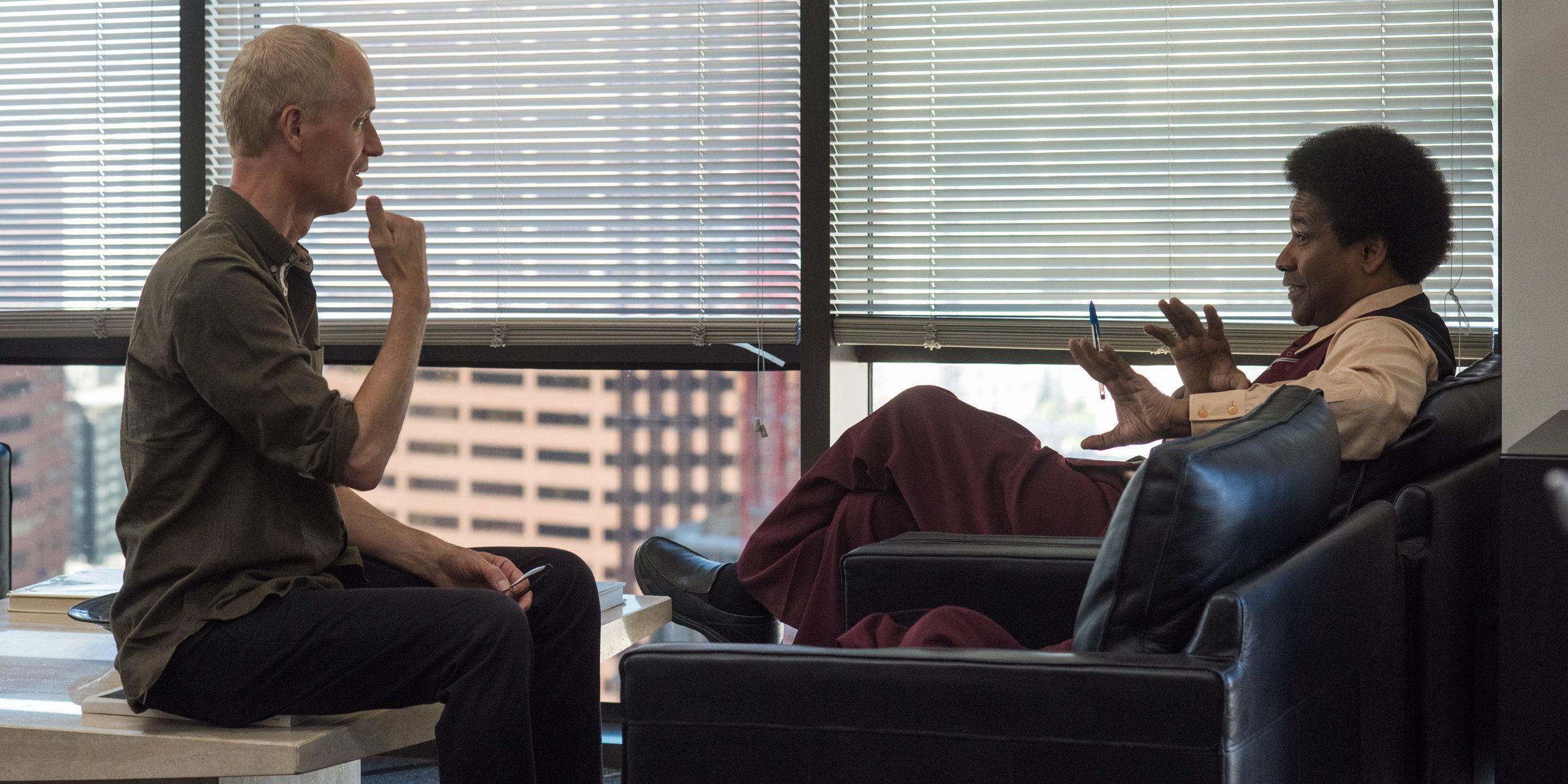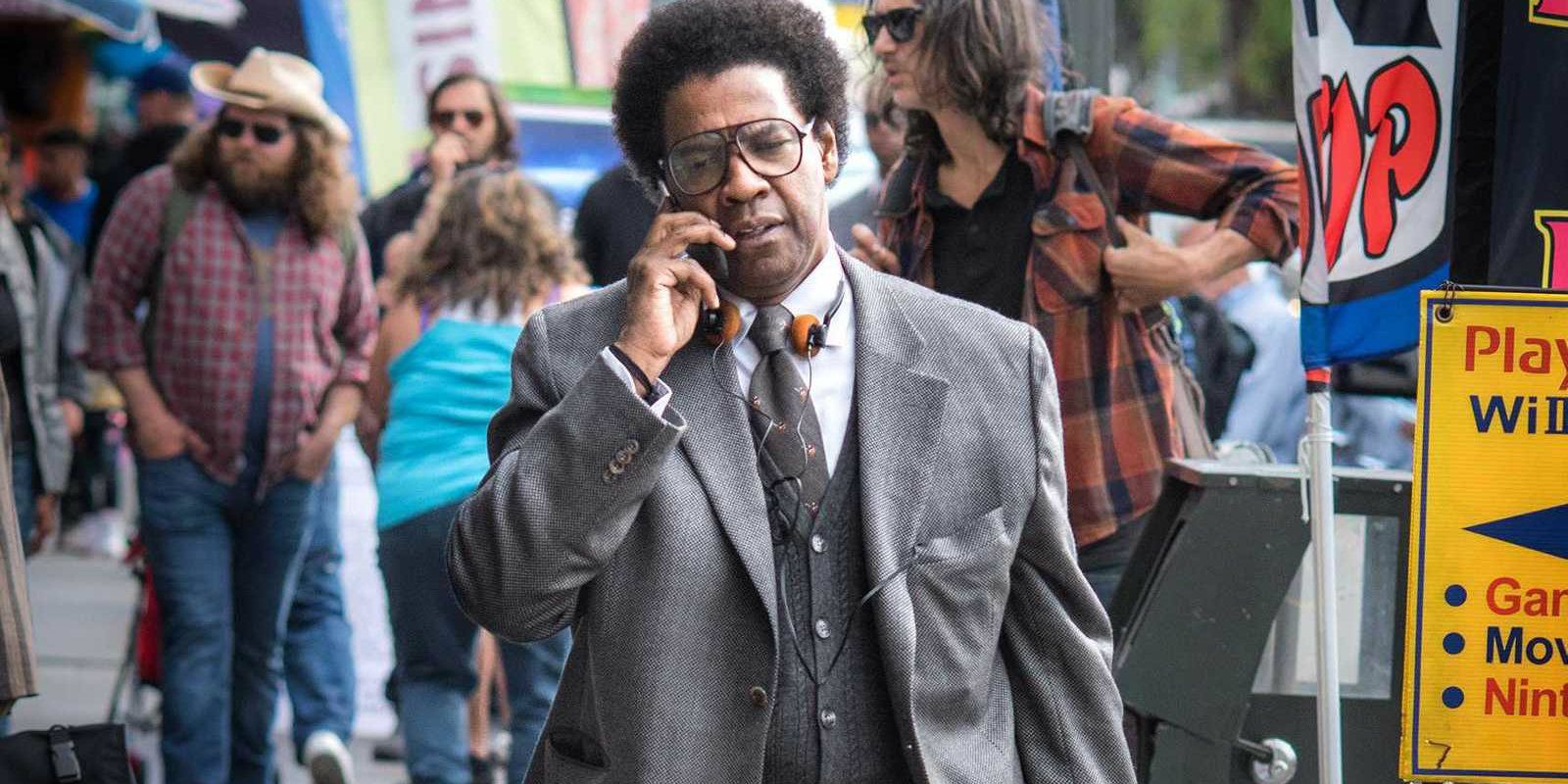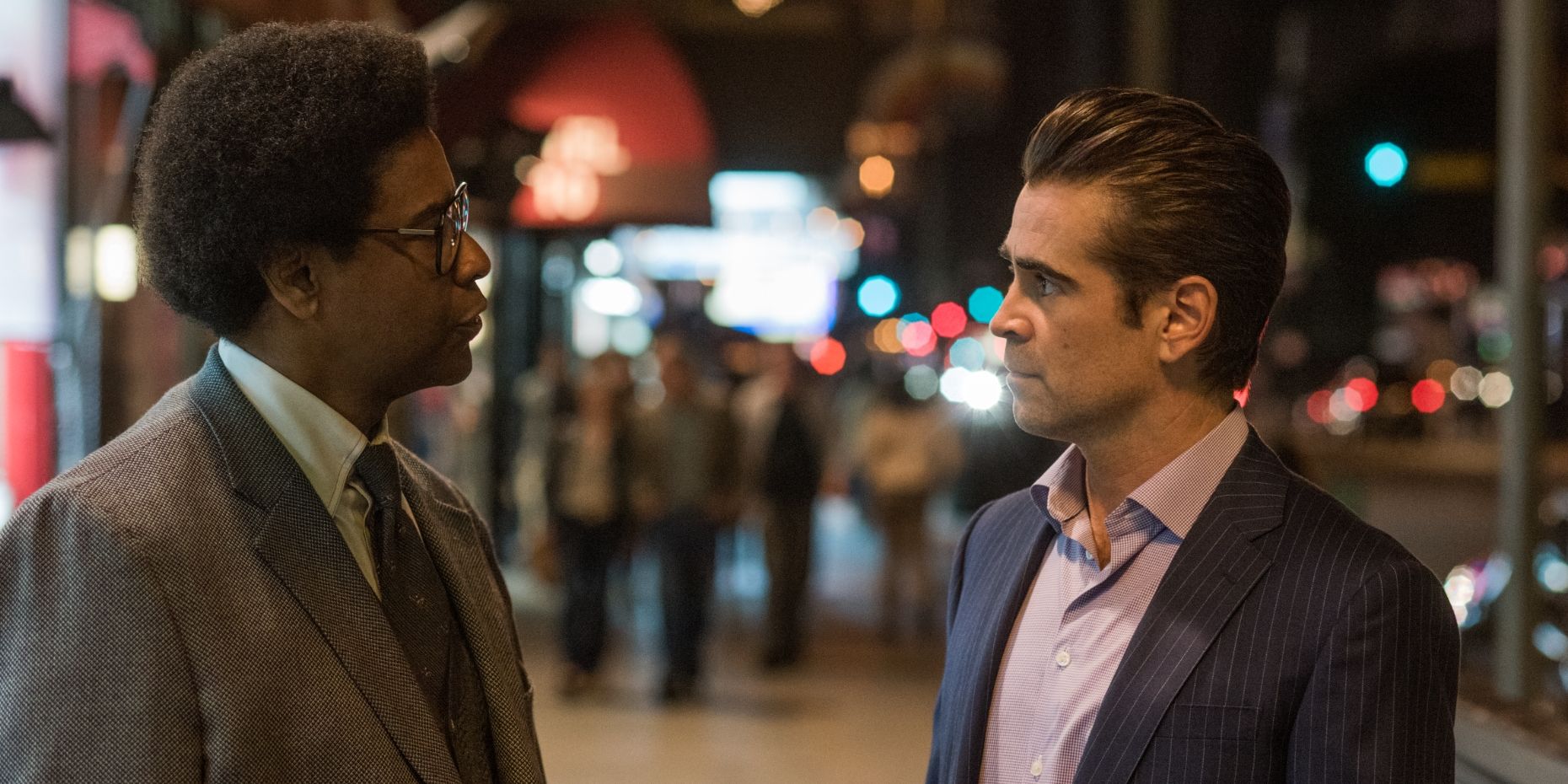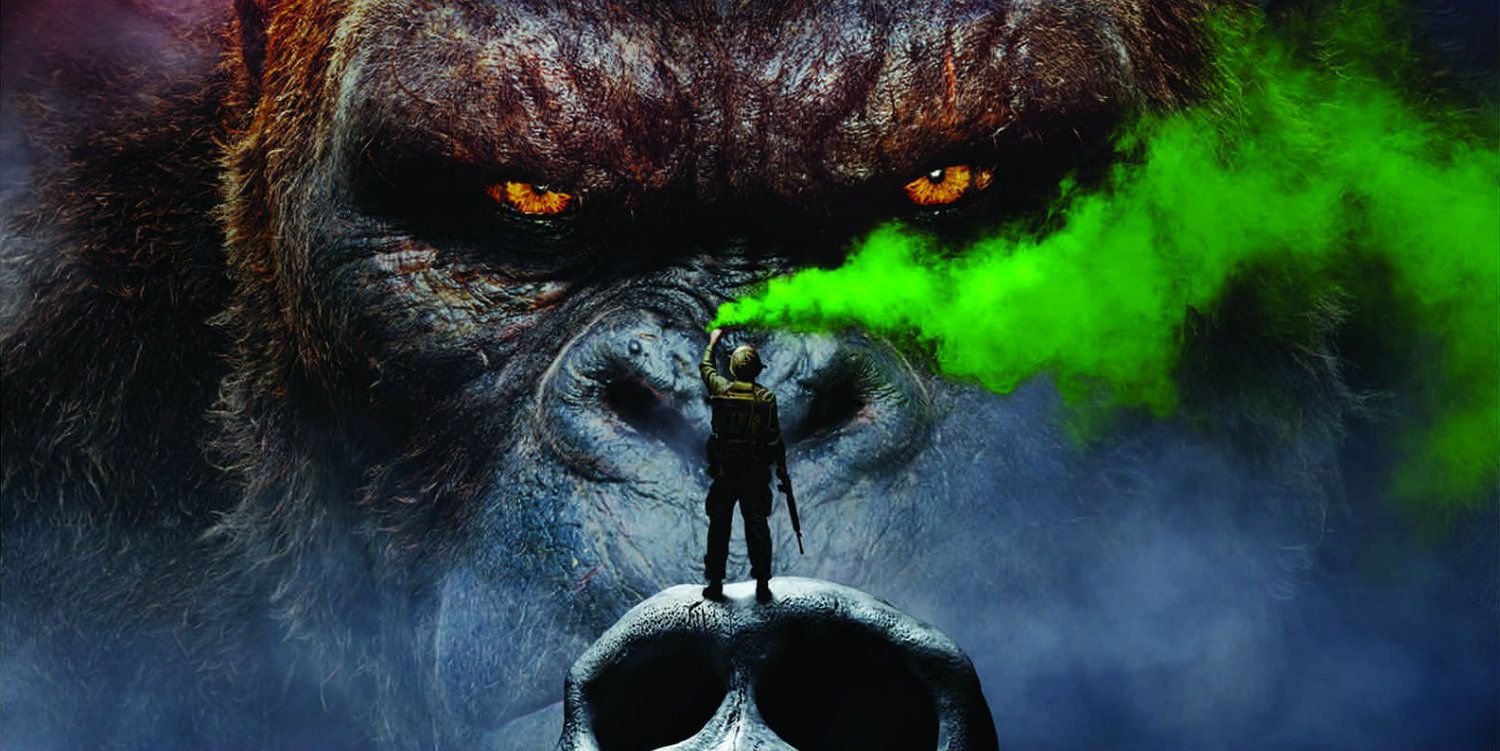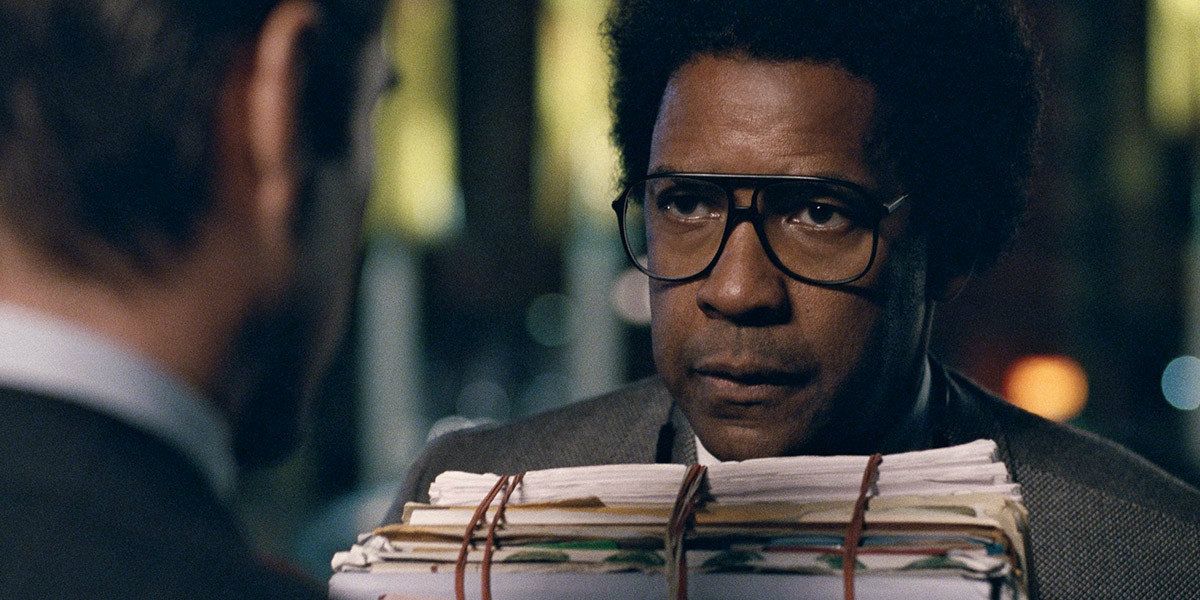Dan Gilroy is a screenwriter and a director, becoming most known for writing and directing the award-winning thriller Nightcrawler. He’s written films in a variety of genres, but his most critically acclaimed work surrounds world of drama and thrillers, with works like Two for the Money and The Bourne Legacy. Now he has written and directed a highly anticipated legal drama titled Roman J. Israel, Esq.
Screen Rant got a chance to talk to director Dan Gilroy on press day, where we discussed how he approaches casting during the creative writing process, how the decision came about to write Roman as someone on the autism spectrum, and how the themes in Roman J. Israel, Esq are relevant to what’s going on in the world today.
SR: First question I have you got to work with two of the best actors around all of all time Jake Gyllenhaal and probably one of the greatest actors ever Denzel Washington. Yet with Nightcrawler and Denzel obviously. Do you have these actors in mind when you're making the film and where you just get lucky really like a casting department?
Dan Gilroy: I wrote Roman Israel for Denzel specifically.
SR: Really?
Dan Gilroy: I took a year on spec. Took a year to write it. Had he not done it I would have put it away. I didn't think it was another actor that I wanted that I felt would have done had all the qualities of this character and I would put it aside so I got very lucky there. I mean, people were saying I was crazy. I took myself off the market for a long period of time. And I was just committed to working with Denzel I've always wanted to do and I thought this was the perfect part for him, so that's that. Jake was right at the top a list of people I wanted from Lou Bloom and you know I'm incredibly lucky to get my first film and I get Jake because he really is one of the best actors out there and he's only getting better.
SR: Yeah, I mean I just saw him in Life and I was blown away he was amazing. How much does the project or role change will obviously when Denzel jumps on board, I guess, in this case, it changes completely as it doesn't happen at all.
Dan Gilroy: It doesn't happen at all. So if he comes on board what happens to the role? Both of those situations where I underwrite these characters I don't tell you much about them. I don't give backstory in the screenplay. I don't give much backstory, description. Very little. So I'm asking an actor to come in and create that character. So, when Jake comes in he does the twenty-seven-pound weight loss. He grows his hair out, and he does the scrunchie arms things, and he creates all of that. And I invite them to. I want him to. I can write a part of the story but I'm very much looking for a good actor come in and fill it out. Denzel comes in he had carte blanche to create the look of the character the mannerism's of the character because no matter how good a writer you are or think you are, a great actor within a very short time he's going to be ahead of you in the character.They're going to understand and give to it emotional depth and motivation. They'll make choices that are that about the externals of the look and I don't want to get in the way that. I very much like to collaborate. Jake was my creative partner in Nightcrawler and Denzel was my creative partner and a producer. We created in collaborated on every aspect of the film, so I'm very much looking for a creative partner when I'm working with the actor. I feel a great affinity for actors for their fearlessness, and their sort of ability to create the great ones and I just feel blessed to be able to sit down and take a piece of work that I've done and have them expand on it, and take it, and make it their own. That's what I'm doing as a director on Israel. I really look at my job as creating a space that Denzel felt comfortable creating in. Literally, it was like I wanted to create a zone that he could create in all the time. All the mannerisms that Roman does all these little touches, these are things that Denzel mind creates, but he shows up on the set and he feels comfortable crying. He feels comfortable hemming and hawing on the phone when he gets asked on a date. He gets comfortable hiking his pants up when he runs somewhere. I don't want to be there telling him do this or don't do this. What you're hoping for is it an actor comes in, and they just so inhabit the character and the scene, that reality bleeds away and you're suddenly like oh my god. This just starts to feel real.
SR: Some of the dialogue with that was that, was any of that ad-libbed by Denzel when he felt it on set?
Dan Gilroy: Yeah, it was definitely. Not a tremendous amount. If he felt something I would definitely encourage, if he something he wanted to change, a line or whatever, I absolutely love it. When he has a moment, when he's feeling something, he should do that.
SR: Was there any specific inspirations for creating Roman J. Israel Esq. that you looked and kind of wanted to base the character on?
Dan Gilroy: No. The idea came from I remember the 1960's, and I remember this just a sort of national spirit of activism. Everyone was fighting for civil rights, and women's rights, and anti-war protests, and I just noticed in the last four decades of that sort of national mood evaporated into nothing. I became interested in a character who never left the sixty's and when I started to research that, what I found out was that the people had left often went into progressive law. The characters started to form from that. There was no real person I was looking at it was just all these are people who wound up in small criminal firms trying to do impact litigation on the side and then it started to form the character. Okay, he could be in the back room, he never got the accolades he deserved as a guy in front. The character just started to form from that thought.
SR: One thing I did notice about Denzel's performance, and I don't know if it was just me, but I wanted to ask you, do you think that Roman was somewhat on the spectrum because there's a line in there Colin Ferrell's character delivers, "I thought you were I thought you were functional." It's never said, like hey you're on the spectrum.
Dan Gilroy: It wasn't, and I didn't put it in the script, but Denzel thought that was the case, and we brought in experts on Asperger's. We became very knowledgeable about Asperger's and I do believe that some of that behavior that Denzel is doing is based on his research. He doesn't make eye contact at times. Social awkward sometimes goes with that. When people try to hug him or come in contact with him he doesn't feel comfortable doing that. He's obsessive and doesn't understand social cues or so, yeah, I would say that would be definitely part of the character.
SR: Interesting. Yeah, I thought so but I didn't want to just assume it. Now, there's a lot it's going on the world right now. This might be inspirational for some people with social responsibility with political activism. How are the themes in Roman J Israel Esq. relevant to what's happening politically and socially currently now?
Dan Gilroy: Well, Roman has dedicated his life to activism. He's dedicated his life to fighting for equality and equal justice everywhere. This movie has landed at a time when that is front and center. There are challenges to our government and challenge our political system regardless of what side you're looking at it this is a time of crisis, and anybody who feels a strong desire to get involved should look to Roman and go I want to fight for something bigger than myself. There are things bigger than me in my life that are worth fighting for. Maya's character is somebody who's younger than Roman but is in the middle the fight. There's a price tag that comes with activism. You could use your time to get at your job. You can try to make partner at a firm. You could buy a more expensive car. These are people who say I'm going to spend my time in the service of other people, and the emotional toll of the financial toll can be tough. So, I would look to Roman as inspiration. That sometimes working on behalf of something you believe in. Working on causes that are more important than your job have their own reward that you're not going to get accolades for, and people are not going to come up and promote you, but you can go to sleep at night thinking I'm working on it cause it's bigger than me. You can feel connected to something. It's a faith in a way. it's a spirit. You can feel connected to a larger spirit and I encourage everybody to do that.
SR: As we see the downfall of Roman and he does inspire the people around him like Maya (Carmen Ejogo) George (Colin Farrell). With Colin specifically, I read that there was a subplot that was cut out. Is that true?
Dan Gilroy: There was a subplot that was cut out that but was vastly diminished at the firm, at Colin's firm. This young man, who gets parted with to do pro bono work. We had evolved a more evolved plot line between Roman and the young kid. In turn, we had a big scene where they were working at night a kid wanted to go home and Roman really instilled in him this idea of like what's more important your life? Where you got here? You know, this is this guy's life is on the line with this pro bono thing. That subplot did get diminish to focus more on Collins subplot of him being rekindled in a way into something that he felt he lost.
SR: I love Colin Farrell's character in this. I actually love all the characters. You see the changes in every single person and you see how they're affected by Roman. At one point the title was called Inner City. Why the change?
Dan Gilroy: Because Inner City, as we started to make the film we realized the title was referring more to the landscape that the character moved through the world and the more we watched Denzel work and read his character life we realized we wanted a title that focused in on what was the most important part of story, which was this guy's life. That turned out to be what we wanted to focus. Somebody who you could easily pass on the street not gives a second look to. Sort of almost an invisible person that if you lift up the rock and you look at his life you realize how important this guy is. Look what he's fighting for? He's the glue that holds so much together, and hopefully look around at other people that maybe you wouldn't give a second to and goes what is the importance of all of this? You know, I feel like we live in a time where we like looking for a hero but Roman says we're all agents of change. Every one of us has that ability. Roman is a hero in my mind. He's somebody who selflessly fights for something expecting really, very little in return for a greater good believing in something larger themselves. You asked about where we are right now. This is what I believe people need to feel. Every one of us is an agent of change. Every one of us can effect change. We don't need to look outside our results. Every one of us can be the hero that we want to be, and that's so that title focused on that.
SR: I mean, I agree with you. I love Roman because he says the things that are on your mind he just says them.
Dan Gilroy: He cuts through all the niceties and speaks the truth. The truth's brutal.
SR: And it is, and it gets him in trouble. His mouth gets him in trouble quite a lot.
Dan Gilroy: I like people who do that by the way. I like people who cut through and speak the truth.
SR: You contributed to the screenplay earlier this year for Kong: Skull Island which was a really unique and cool take on the character what is your personal connection to Kong and what are your feelings on the future the franchise with Kong vs. Godzilla?
Dan Gilroy: So my connection to Kong is just having grown up watching like the original. The original like 1930's King Kong, which to me was just mind-blowing and I like I like the mythic nature of untamed nature and something I'm tamed and wild still exist in our world. In terms of this film, we reinvented it in a way that we want to Skull Island, which is always the place you left from, and we really want to focus on this sort of lonely existence of Kong, like the last of a breed and what's it like, and so I thought that we're very effective doing that. In terms of where it's going, it's it's I think there are some big conflicts ahead for the Kong. Major, major conflicts. Very big conflicts.
SR: You seem to be in a great position for the big leap to these big budget superhero type things. I actually read something about Stan Lee's Annihilators.
Dan Gilroy: Yeah, I wrote that about five years ago and it's supposed to be a Chinese co-production. Yeah, Right now they're still lining up financing. It's going to be expensive film and if they're trying to line everything up with their Chinese financing.
SR: Speaking of these big budget things are do you have any interest in helming a comic book movie or franchise that would inspire you?
Dan Gilroy: I only have interest in directing something I write. If I was brought on to write a superhero film that I felt connected to and it was a script that I really like I would consider that but I would not come in and direct somebody else's version of it.
SR: With with everything that happened in Roman and also a lot of the great actors you've worked with, like Colin, for example, are there any ideas that you have where you want to write specifically for Colin, or any of the certain actor?
Dan Gilroy: Yeah every time I work with an actor I just want to write more for them, so my next film is going to with Jake. I'm Jake back for a film that I'm doing for Netflix. I just worked with Denzel and Colin and this morning I was working on the idea for Denzel. I spent all day with him yesterday and I was like I want to work with this guy again. I'm thinking of something for Colin. So you spent time with an actor that you like, you instantly start like thinking what else can I do with them? What else can I do with them? It really happens a lot.
SR: Is that a challenge for you though? With Roman has a very distinct personality and you know Denzel personally. Is it is a challenge to say what can I bring out to you next?
Dan Gilroy: It's not a challenge when they're great actors. I could make Denzel a pink unicorn. If it was a great story he'd be the best pink unicorn ever saw. That's the beauty of working with great actors. They can do anything. Denzel can do comedy if he wants to. Denzel can do obviously do action. He can do drama. there's nothing he can't do. Same with Colin, and Jake. He's incredible. They can do anything and they're looking to do things that they haven't done before. They want to do things that are out of the box. They really do, so I'm not ever thinking, I want to recreate Training Day or I'm going to recreate Demolition, or you know, or anything like that. I'm always thinking what haven't they done. I want to see Denzel do something that he's never done before. Honestly, I want to see Collin do something that he's never done before. That's why I like the Lobster. Colin is sort of moppy, dejected, rejected dude, and just so low-key.
SR: One thing I did want to ask was you, just talk about Netflix.
Dan Gilroy: Right.
SR: With the way we consume media even consume entertainment is changing drastically. Where do you feel that's going and do you get more freedom with a company like Netflix to create more?
Dan Gilroy: Right now, Netflix is offering the best deals. They're offering the most money for the same thing and in terms of where we're going. I agree with you. I think there's a profound lasting change going on. I think in the next five years the number of screens in the United States is going to drastically decrease. I think there's always going to be a theatrical experience for certain films but it's not going to be nearly as widespread now, and I think you're going to see content being absorbed... I feel like doing it on a Friday night you know, what's new on Netflix, or whoever and instead of five hundred people, you're going to watch it with five your friends and that's a theatrical experience. It is. I mean that's you watching a sixty-inch T.V. or forty inch T.V. or whatever is, and you're with friends and you can talk about it afterward, and you go to work everyone watching on Netflix and I think that's what it's going to become.
SR: I agree with you one hundred percent.
Dan Gilroy: I don't think it's a bad thing, but content is content. People want to be informed. They want to be entertained and I don't have a problem, you know, I just think I think that the theatrical experience has gotten very expensive and very specific to spectacle, but I think like places like Landmark and theater chains like that, where you'll go and watch a David Russell movie or whatever. Let's go out, it'll be fun. They'll become like records. That we like a retro thing about it.

